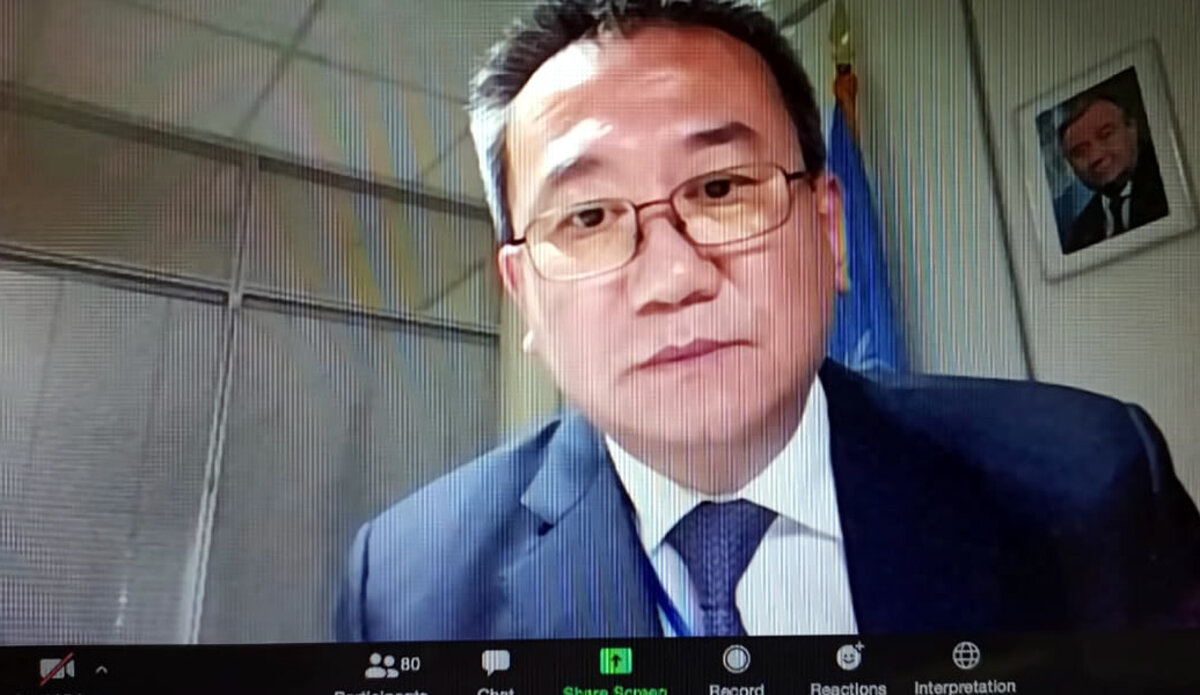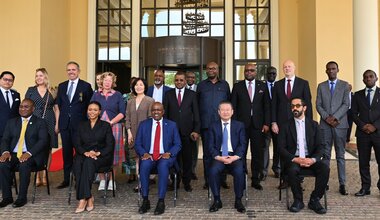The Office of the UN Special Envoy for the Great Lakes Meets with Partners, Discuss Ways to Mitigate COVID-19 Impact on Region’s Economies
Nairobi, 18 June 2020 - As part of its ongoing efforts to map out response plans to COVID-19, the Office of the United Nations Special Envoy for the Great Lakes organised a virtual roundtable discussion on 18 June to mobilize resources to help mitigate the negative effects of the pandemic on the countries of the region.
The meeting was called by Huang Xia, the UN Secretary-General’s Special Envoy for the Great Lakes region, and co-chaired by Vera Songwe, Executive Secretary of the UN Economic Commission for Africa (UNECA).
Government officials from Burundi, the Democratic Republic of Congo (DRC), Rwanda and Uganda attended the meeting, as well as representatives of multilateral and regional financial institutions, such as the World Bank, the International Monetary Fund (IMF), the European Investment Bank (EIB), the African Development Bank (AfDB), the African Export-Import Bank (AFREXIMBANK) and the Arab Bank for Economic Development in Africa (BADEA).
Also in attendance were representatives of the Trade Development Bank (TDB); Guarantor institutions of the Peace, Security and Cooperation Framework for the Democratic Republic of the Congo (DRC) and the region, namely the African Union (AU), the Southern African Development Community (SADC), the International Conference on the Great Lakes Region (ICGLR), and the United Nations. Development partners from the European Union, the Trade Mark East Africa and the ICGLR Private Sector Forum also attended the virtual meeting.
The main purpose of the meeting was to reinforce calls by the UN Secretary-General and the Chairperson of the AU Commission for international action and solidarity with respect to COVID-19.
Participants shared information on the COVID-19 funding currently available, and identified ways to channel such funds to the countries affected. They called for concerted efforts to ensure synergy and coherence to facilitate the mobilization of resources for COVID-19 in the Great Lakes region, which is also battling the Ebola epidemic, mainly in the DRC.
Participants noted the scale of the COVID-19 impact on the region, which has led to border closures, to supply chains disruption and almost a halt to regional economic activity, while at the same time exacerbating tensions between countries. They also noted the disproportionate impact of COVID-19 on the countries of the Great Lakes, and expressed concern over the severity of the crisis and its deep and prolonged economic effects on the entire region.
After reaffirming that joint efforts are necessary to meet the challenge of COVID-19, participants called for coordinated approaches at all levels, in particular by member states and Regional Economic Communities (RECs) to use all available tools to avoid setbacks and maintain regional integration gains.
They commended member states and RECs for the timely and exceptional measures already taken at the national and regional levels, including the implementation of movement restrictions, fiscal and financial stimulus and other social measures to address the COVID-19 pandemic to limit its spread, reduce the death toll and minimize the social impact on communities.
Participants welcomed the initiatives at the international and continental levels to mobilize resources in response to COVID-19, including the G20 moratorium to suspend debt payments for Official development assistance recipients for 12 months.
 UN
UN





